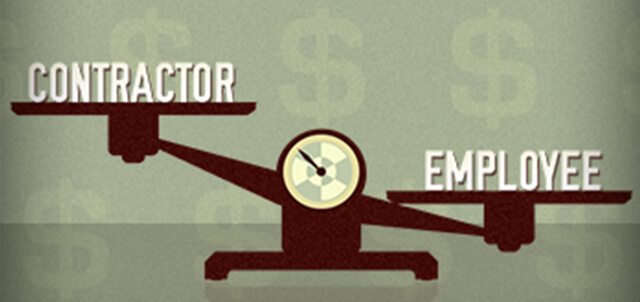
The Fair Work Ombudsman has recently been focusing on contractor arrangements to determine whether an employment relationship exists. It would be a good time to start your year by revisiting your current contractor arrangements.
The Risks
If your business is treating an employee as if they were an independent contractor you may be liable for underpayments for minimum wages, overtime, penalty rates, allowances and leave – this attracts potential penalties under the Fair Work Act. Additionally you may be required to pay unpaid payroll tax and superannuation charges. You may also be required to insure a contractor under the Workers Compensation Scheme.
What you should check
The first steps are to ensure that the contractor is not deemed under the workers compensation legislation and superannuation legislation as being workers of your business so as to understand your obligation to insure them and/or pay superannuation on their behalf.
It is then prudent to ensure that the agreement with any independent contractor is made in writing which clearly sets out the agreed work and nature of work so as to avoid dispute in the future.
Courts will always look at the substance of the relationship rather than purely the contractual description. A contractor in substance will generally not be an employee where:
- The contractor maintains discretion and flexibility as how work is to be completed and not directly controlled and supervised by you;
- The contractor provides services to multiple clients and not exclusively to you;
- The contractor may delegate some or all tasks to another person or employee;
- The contractor must be responsible to rectify their own work at their cost;
- The contractor uses their own equipment and tools;
- The contractor works independently of the employer and the employer does not control the contractor’s method of operation or business;
- The contractor has the ability to set their own hours of work so long as they complete the services;
- The contractor is not paid a fixed wage or salary but rather paid for the amount of hours worked or tasks completed – the work is typically invoiced;
- The contractor is typically engaged through a company, partnership or trust structure and such entity will have an ABN.
What if a contractor is an employee?
In summary, if you have not appropriately treated a contractor as an employee you may be liable for:
- Additional payroll tax;
- Back pay under a modern award and potentially penalties for breach of an award;
- Unpaid annual and long service leave;
- Compensation for unfair dismissal where employee performance management was not suitably applied;
- Unpaid superannuation charges required by legislation.
The penalties and requirements for any audit or compliance imposed may be of significant cost to the employer. If you are a sponsor of employees for immigration purposes any non-compliance may affect your ability to continue to hire sponsored employees.
Adrian Fong
Director – Corporate and Commercial
_______________________________________________________________________________
A+F Commercial Lawyers offers specialist legal advice to assist in the establishment, expansion, operation and divestment and acquisition of businesses and corporate groups.
www.afcomlaw.com.au
